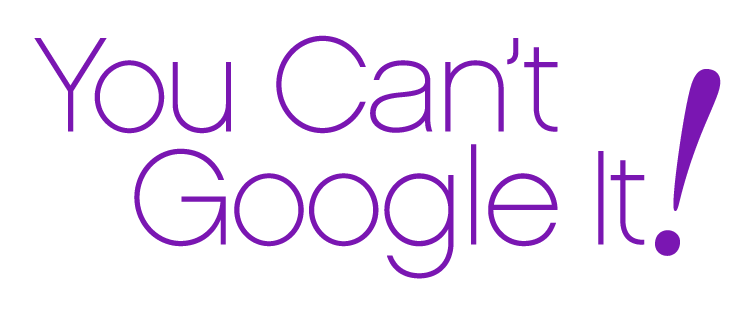How Gen X Will Get Its Turn to Lead
/Many Gen Xers are still experiencing the “Prince Charles syndrome,” wondering when their time will come. Boomers who put their plans for “re-careering” on the shelf during the Great Recession to hold on to what they had are expected to leave current positions for new career destinations as opportunities open up. For the sake of providing opportunities to the generation waiting in line, senior workers’ roles and responsibilities need to shift at some point, (though I am not in favor of involuntarily removing productive people).
Many Millennials are eager for promotions to leadership or management roles, leapfrogging over Xers. For now, the trick is to capitalize on Boomer knowledge and experience without alienating the bottlenecked Gen Xers and to ensure that Xers will be sufficiently prepared and agile as a “bridge” among generations.
One answer is to pay Boomers still in place now to transfer their valuable acquired wisdom, contacts, and skills before they up and leave, voluntarily or involuntarily, with those precious assets or fail to pass on the baton and client/customer relationships. That will prepare the Gen Xers to thrive when the bottleneck opens.
Prospects for Gen X Leaders
What are the potential strengths and liabilities of Gen X prospective leaders (born approximately 1962-78)? Many of the older Gen Xers had been left to fend for themselves or faced the job search hardships of the late 1980s recession. Their skepticism and distrust of institutions made them resilient and gave them strong survival skills with the ability to develop many options. They turned out to be hardworking and resourceful. They typically are more globally aware than Boomers and have a somewhat better appreciation of women in authority roles. They are faster than Boomers when it comes to adopting new technology. Other strengths include adaptability and openness to challenge and variety. (Note: The youngest Xers, sometimes known as Xennials, often exhibit attributes closer to Millennials.)
Gen X is tech savvy and is the generation that developed much of the technology we use today and the basis for Millennial and Gen Z newer developments. However, they entered the work world of the Boomer culture and traditions, and they are comfortable communicating in person and by phone. In those respects, they can be a generational bridge.
On the other hand, they do have certain liabilities as managers, including impatience with people who don’t try to figure out things for themselves, typically poorer people skills than Boomers, and occasional cynicism. These attributes frequently surface in their roles as supervisors and mentors of the Millennials and can lead to potential clashes between them. For example, Gen Xers tend to like to work autonomously and are proud of their independent resourcefulness. Millennials, by way of contrast, like working in teams, collaborating, and want and need a lot of management guidance. They ask a lot of questions upfront, because that’s what they were educated to do, and they want to feel secure that they will do things right and garner praise. Gen X finds this demand for continual attention frustrating, even annoying, and have considered Millennials to be coddled and over-protected.
It’s likely Gen X leaders will be substantially different from typical Boomer cohort leaders who have generally been in charge for some time. Those two generations differ in many ways, and the fast-changing circumstances of life and work require different styles and responses.
In Danger of Losing Gen X Talent?
Many Gen Xers are thinking of changing their employers during this sellers’ market for talent combined with the frustration of blocked promotion opportunities where they currently work. Consider as a firm/organization addressing these questions:
What is stopping you from vigorously preparing to avert a Gen X brain drain and putting well trained new leaders in place?
What are you doing to be a place personnel and clients want to stay with for the long term?
What will be the impact of Gen X - the generation that by age and experience is the logical source of next leaders - as well as Millennials on the culture, business, and solutions to the big problems the country and world faces?
How Gen X Can Change the Dynamic
As individuals, rather than resenting being overlooked by media and advertising and being taken for granted by employers, Gen Xers aspiring to move up and create their legacy at work need to raise their visibility and strategic voice and work their action plan. A blueprint for that would include:
Identifying and articulating your purpose at work.
Visioning what you would like your work legacy to be, whether in your current organization, occupation or elsewhere.
Outlining a path to fulfill that legacy for your organization’s as well as your own benefit.
Lining up influencers and resources you will need.
Creating a timeline and milestones.
And don’t forget – Celebrating achievement along the way with supporters.
Are They Ready?
With the demographic phenomenon of a small Generation X cohort, firms/organizations are faced with a situation in which much of the generation is either unwilling to sacrifice a significant part of personal life as the Boomer have or may not be suitably trained to take over the demanding responsibilities of leading their businesses in line with the productivity standards the Boomers sought and achieved.
Organizations that fail to implement succession and transitioning strategies now, may well face a leadership gap in just a few years that will be filled by Millennials with a lot less experience and a workstyle and mindset that is a puzzlement to many older colleagues. What starts as an internal problem can soon escalate to a service delivery problem.
Help Is Available: If you don’t know where or how to start, or you know you need help, contact me for guidance and a jumpstart.
© Phyllis Weiss Haserot 2019


